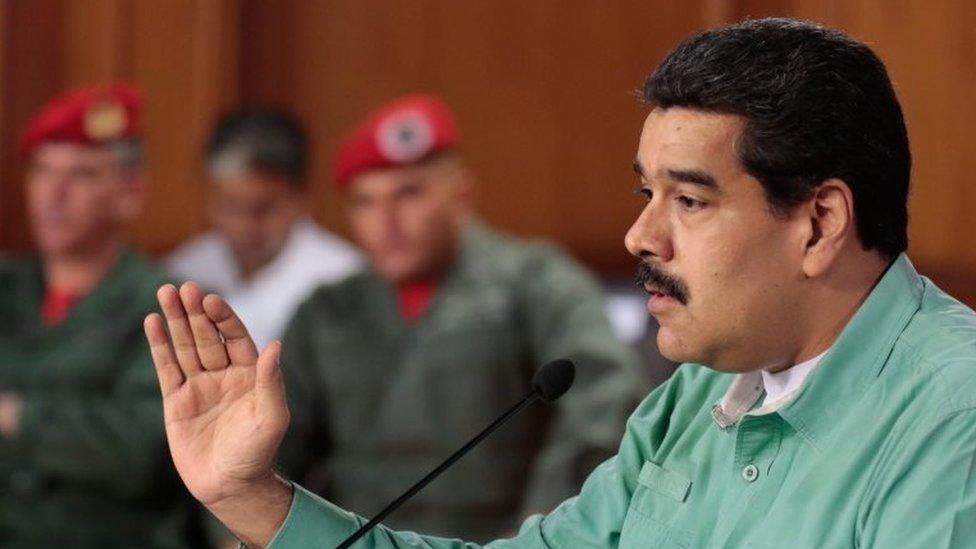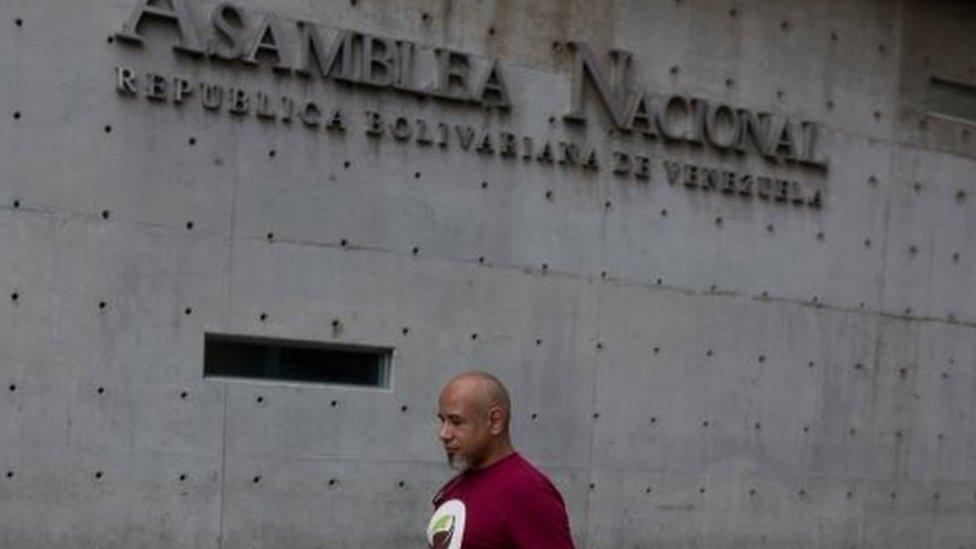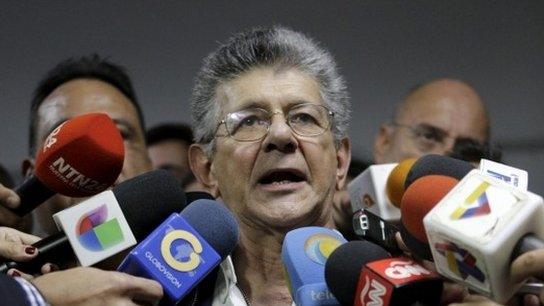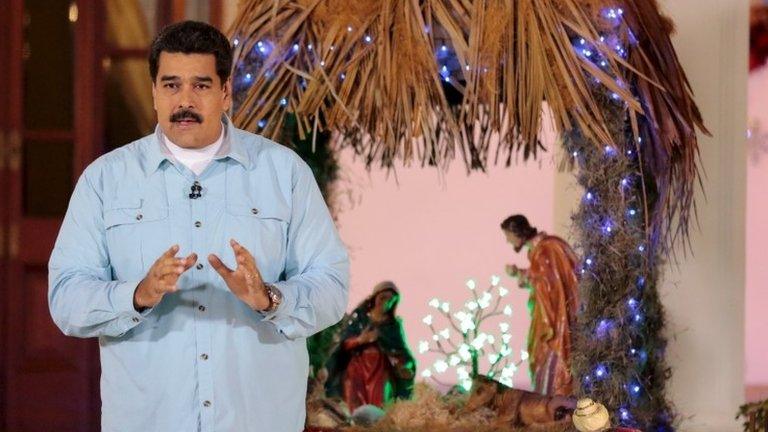Venezuela leader limits Congress's power over Central Bank
- Published

Nicolas Maduro had been granted powers of decree by the outgoing National Assembly
Venezuelan President Nicolas Maduro has limited the National Assembly's powers over the Central Bank.
President Maduro approved the changes on Wednesday, but it only became public on Monday.
The president will now no longer need legislative approval to hire and fire Central Bank directors.
The change was announced shortly before a new assembly, controlled by an opposition coalition, is due to be sworn in later on Tuesday.
Last-minute change
Mr Maduro approved the change to the law governing Venezuela's Central Bank on 30 December, one day before his power to legislate by decree expired.
He was granted the power to govern by decree in March by the National Assembly, which at the time was dominated by his supporters.

Later on Tuesday, newly elected lawmakers will be sworn in at the National Assembly
The amended law not only curtails the powers of the assembly over Central Bank appointments, it also allows the bank to withhold data if it deems its publication a threat to national security or economic stability.
Opposition lawmakers, who won a landslide victory in elections on 6 December, had said they would press for the publication of key data.
Inflation figures, estimated to be among the highest in the world, have not been made public since December 2014,
'Monstrosity'
Under the new law, the Central Bank can also allocate money to the state without the approval of the National Assembly.
Opposition politicians said it was the latest in a series of moves to undermine the power of the legislative following last month's elections.
"The reform [of the Central Bank law] is a legal monstrosity to protect a highly questioned president," opposition lawmaker Jose Guerra said.
The opposition had announced that it would make economic reform one of its legislative priorities.
Rival rallies of government and opposition supporters were held in Caracas ahead of Tuesday's swearing-in of the new assembly.
- Published4 January 2016

- Published21 December 2015

- Published31 December 2015
